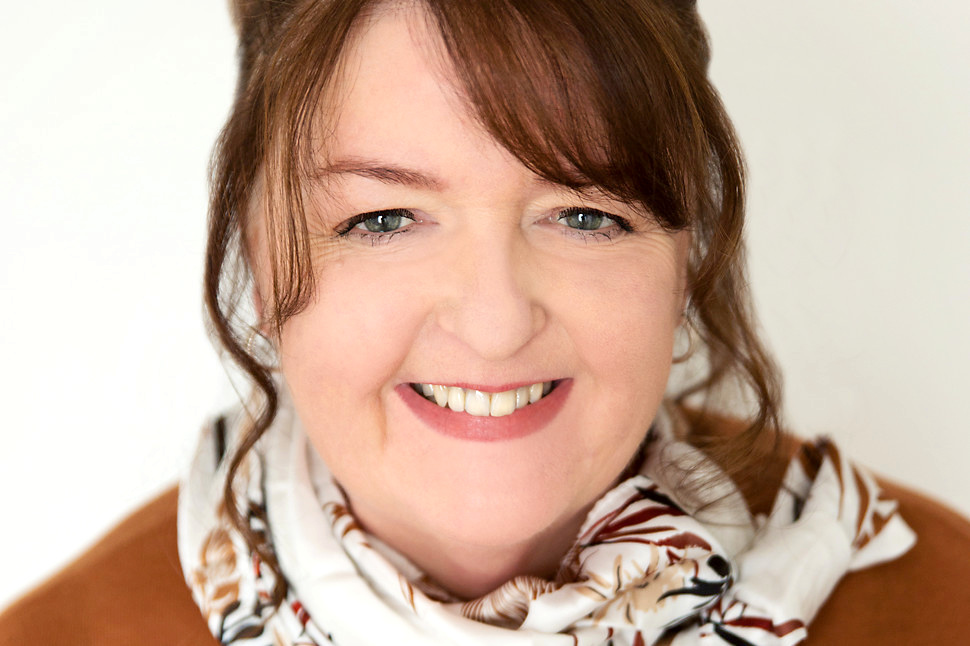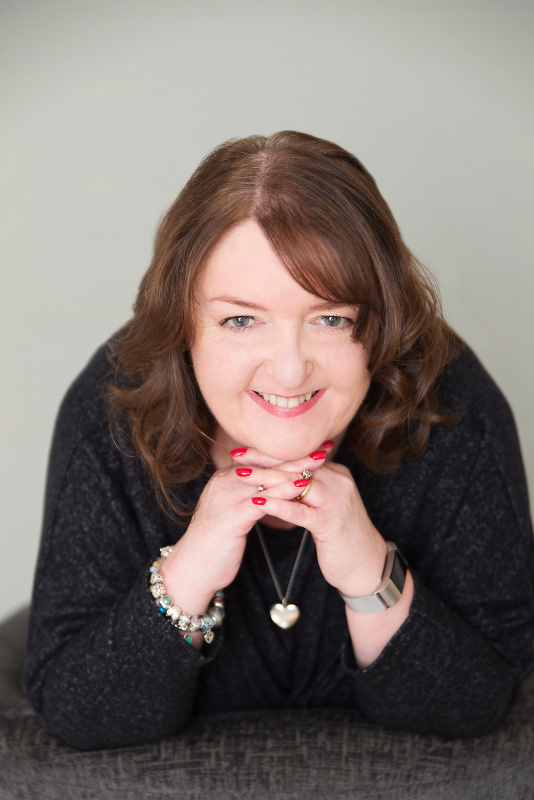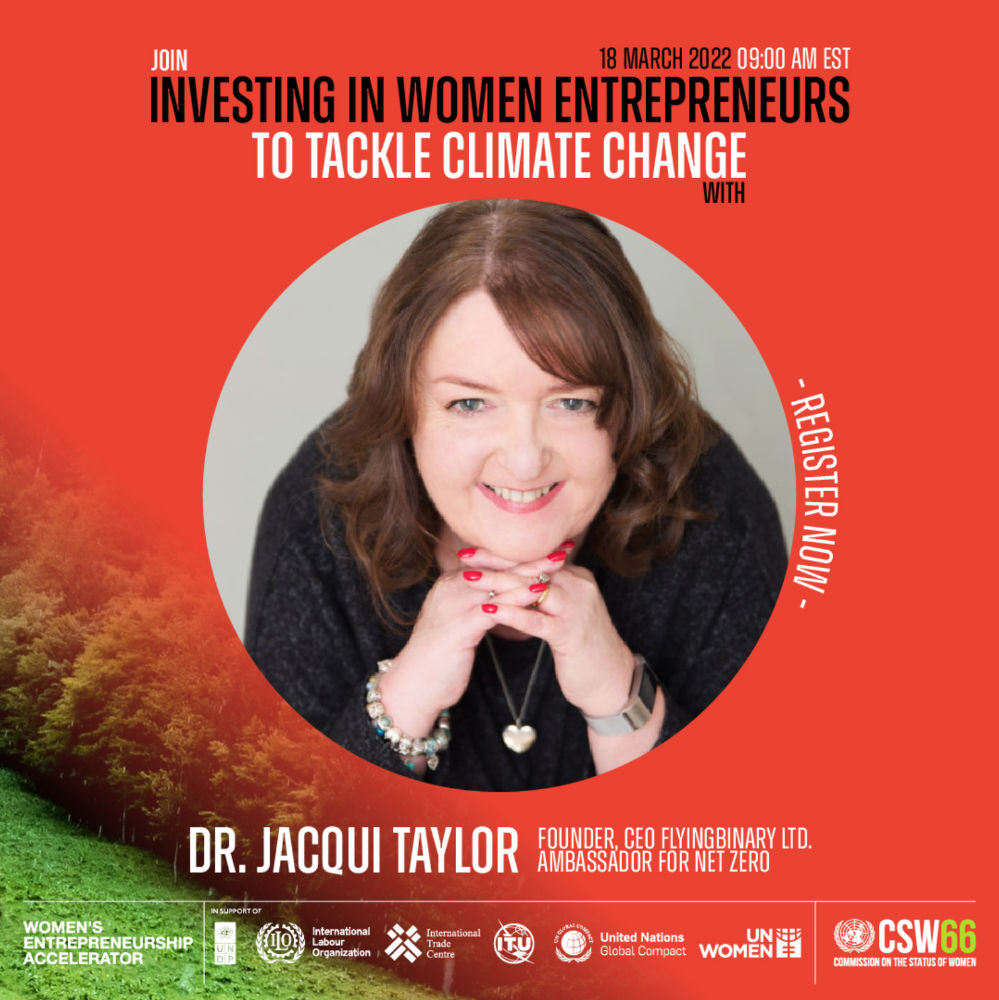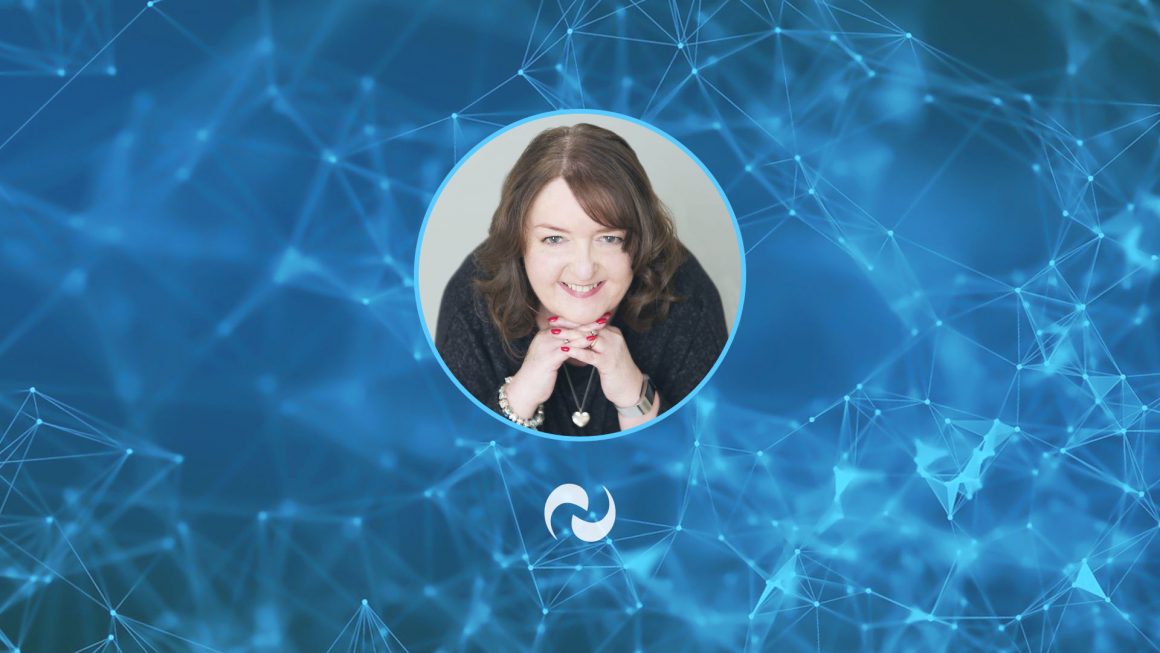DR. JACQUI TAYLOR

As #15 Most Influential Woman in UK Technology and 21 Most Inspiring Women in Cyber she was awarded an Honorary Doctorate of Science in recognition of her international web science work, on inclusion for the Industrial Internet of Things (IIoT). One of the 250 Founders of Tech City, in 2016 she pivoted her company FlyingBinary to meet the challenges of the Metaverse and the Industrial Internet of Things (IIoT) with spectacular results.
She is recognised as one of the 100 Global Leaders, is a Top Ten Global IoT innovator, and an independent industry analyst for the Industrial Internet of things (IIoT) . She is an Expert Advisor to the European Commission in a Fire-Starter role for the Future Digital Economy, with a specific focus on innovation and improving the health and wellbeing outcomes for 450 million citizens. A Top 20 UK Impact entrepreneurs, most influential UK web scientist in 2021, Top 34 IoT Influencers on Twitter. Shortlisted for a Cyber Security industry award she was invited to speak in Davos on the future of the Cyber Security Industry.
Globally recognised as the world’s first Smart City Tsar, and a Strategic Advisor to the UK Government, Cities lead on Digital Built Britain, Principal UK Expert lead for BSI international team for Technology, Data, Smart Cities and AI. She has recently taken an appointment back in the UKs Cabinet Office to create the Open Standards for the UK Government and is an Expert Advisor to the United Nations for the 2030 plan.
She has founded the Empathy Economy to share the secrets of her global success plan with entrepreneurs via a unique membership offering. The Empathy Economy Online launches in 2022. She has personally committed to support 1 million entrepreneurs with resources to meet the challenges of a post Isolation Economy and transition them to grow their companies in the IIoT.
INTERVIEW

Urban Agenda
In 2015, the United Nations General Assembly approved the 2030 Agenda for Sustainable Development, which contains 17 Sustainable Development Goals (SDGs). Within Goal 11 “make cities and human settlements inclusive, safe, resilient and sustainable”, including its seven targets, it is especially important, as it encompasses several components that affect the sustainability of cities and regions, such as housing, transportation, planning, cultural and environmental heritage, disaster risk reduction, environmental impact and public spaces.
You are an expert advisor to the G20 members on the digital economies of the future and an expert advisor to the United Nations for the UN 2030 plan.
1. What is your general assessment of this Development Agenda?
– As we are all aware based on the outcomes of the COP 26 meeting countries are struggling to create the change we need to see at a strategic level to deliver on the United Nations 2030 plan. Whilst the ambition is most certainly there, the strategic thinking on building a roadmap to achieve the 2030 plan is not. As part of the G20 Summit I did the assessments for the G20 members and this was also my overarching assessment. There are many reasons for current situation. FlyingBinary was founded in 2009 on an inclusion agenda and I assessed that in order to deliver the UN 2030 plan we need to reset the current initiatives on an inclusion agenda, to accelerate this change. It was at that point I became an Expert Advisor for the next steps plan for 17 UN agencies. Inclusion is a shared agenda across the UN indeed many of the UN Sustainable Development Goals address the underlying outcomes of inequalities across the world.
2. Do you think that this Agenda could be improved for a better adaptation of it in a social, technological, environmental and also political context such as the one we find ourselves in today?
– The geopolitical agenda is changing at a much faster rate than many expected. For many nations their main focus is their next steps response to the global pandemic. This is unlikely to change in the near future. Work I have recently completed has changed the driver for the change from a supply led agenda ie a focus on cities to a demand led agenda with a focus on citizens. This is world leading research which is gaining traction predominately because it is outcome focused. Technology is certainly an enabler for this agenda. FlyingBinary has technology which can be used to bring the unheard voices across the world to the agenda. I have evidenced this approach benefits all stakeholders, because it uses evidence to determine priorities. This is an important improvement as it has allowed me to focus on the delivery of SDG 17 – partnerships for the goals. A more holistic approach to the delivery of the SDGs.
Smart Cities
The initiative to design an intelligent city started in the United States at the hands of technologists from IBM and CISCO. But despite the fact that emerging technology is driving important change in recent years around the world, the truth is that cities are not so smart, sustainable and inclusive. Perhaps we have never seen so much uncertainty as we are witnessing, the environmental, ecological, energy, security challenges… and the current SARS-CoV-2 pandemic, among others, are an example of this.
You received an Honorary Doctorate of Science in recognition of your international work in web science on inclusion.
3. Do you agree with this approach? If you agree, why do you think technology has not achieved greater and better inclusion of people in society?
– I fundamentally disagree with this approach it has not delivered on the Smart agenda and most certainly not delivered sustainability. My web science research curated the views of 34 million citizens around the world which has enabled me to challenge this approach with an evidence base. This work also earned me an Honorary Doctorate of Science in recognition of the inclusion agenda we were delivering. FlyingBinary has positively impacted over ½ the worlds with the pioneering deep technology we have built. This work resulted in me being consulted by cities across the world about a next steps agenda for smart cities, which is how I received the title of the World’s First Smart Cities Tsar. In summary technology was conceived as the outcome not the enabler, it needs to be redirected to change outcomes. We need sustainable communities to deliver on the SDGs enabled by technology, not where technology is the outcome. Why? because that is how we change outcomes for citizens. However, the technology to deliver sustainable communities isn’t what Big Technology companies build. That innovation is in the hands of SMEs, like ourselves.
You have also worked on the development of standards on Smart Cities. She is a Principal UK Expert leader at the British Standards Institute (BSI) with international colleagues on the high level ISO and JTC 1 technical committees and is the editor of five International Smart City standards.
4. Could you tell us what these standards have consisted of for Smart Cities?
– These standards were originally created when I was an Independent Ministerial Advisor to the UK Cabinet Office, many of which I have been the technical author or a member of the Steering Group for the development. The UK cities were directly involved in the creation of the standards as they needed to understand the complex transition enabled by technology. There are a family of standards which now have been adopted as International Standards enabling cities, communities, and nations across the world.
– These standards have enabled the teams in cities to understand how best to start their Smart City journey. They foster collaboration between Civic and Political leaders to agree on the outcomes they are looking to achieve, mitigating the tension between a shorter term political landscape and the longer term civic responsibilities on behalf of all stakeholders.
5. As an expert in Urban Planning, what do you think about the figure of the Urban Approach in improving living conditions in cities?
– Certainly, Urban planning is a contributor but the landscape for this change is much more complex than the majority of Urban Planners are working on. Urban planning has not yet realised the benefits for Smart Cities. It certainly has a major contribution to make in the smart city journey, however not in its current form.
– My 7th Book Shaping Future Places articulated the urban planning case for the UK Cities, and the urban planning transition which is needed. We also have had all UK party parliamentary discussions across the political divide on this matter. The UK has initiatives underway to deliver on the climate commitments made with a focus on delivering on work I have done as an Expert Advisor to the United Nations as part of the Procurement theme. I expect to be able to bring urban planning into this new dynamic as a key component, but urban planning is neither the instigator or curator of this future.
6. What do you think should be the orientation or focus of these Urban Plans taking into account the current environmental, ecological, energy and health situation?
– The main issue with the orientation of these Urban Plans is they are focusing at a national or sub national level. As Smart City Tsar one of the main strategic changes I recommend is to change this. The current approach has been created by technology companies treating Smart Cities as enterprises with their digital technology offerings. As we have already discussed this leads to technology being the outcomes and not the enabler and it certainly does not lead to Smart Cities, as we have overwhelming evidence to prove.
– A major readjustment which is needed is a strategy which removes this homogenous technology approach to a heterogeneous approach which is city specific. One key thing I would ask everyone who reads this article to understand is…there is only one thing every city or community across the world has in common, they are all different. No Urban Planning approach can be a cookie cutter approach to deliver on the UN SDG commitments.
Within the urban planning process, a change is currently perceived on the part of the institutions in favour of a more humane architecture that has been called “green innovation”. We have an example of this in the “New European Bauhaus” led by the President of the European Commission Ursula Von der Leyen, which aims to explore new initiatives that go in that direction, where a more collaborative spirit is sought where different disciplines converge to bring citizenship a sustainable architecture, quality design, with less carbon, inclusive and affordable for all. Ursula Von der Leyen.
7. What do you think about this European Commission initiative?
– This is a genuine attempt on the part of the European Commission to reset the Smart City agenda for Europe. I have contributed the G20 assessments I did for European member states on the maturity of the current European landscape. As one of 4 Expert Advisors, or Fire-starters as we are called. I have also contributed my world leading web science research to bring the unheard voices across Europe to this initiative. In outline this is a good approach BUT I am concerned about two things. The budget for the New European Bauhaus is in my view not enough to achieve the ambition. The initial research and innovation actions are not only light on funding by some margin, but they also are not intended to create multiple approaches which would create a learning environment for the European Commission. Additionally based on my G20 member assessments I believe that what may work for those countries who have already embarked on some form of this transition will be a struggle for those countries who have yet to create capability. I have shared these concerns with the European Commission prior to them finalising the research and innovation actions.
8. Is it in line with your Urban Planning strategy?
– Unfortunately not. The new Urban Planning Strategy has been developed since the UK exited from Europe and my input to the European Strategy was from my G20 work which is where I developed assessments at a country level, as the EU is not a member of the G20. It has been developed on the basis of the known gaps rather than the new evidence base I have created since the UK left Europe.
9. Beyond cybersecurity, you are an expert in the Internet of Things. Could you tell us about your professional experience in the development of this challenge?
– The deep technology FlyingBinary builds support our clients and governments to transition from Digital technology to the Industrial Internet of Things (IIoT) using a new trust model with complex security, access and control mechanisms, configurable to the setting. For example the deployment of IIoT services in a city require a new social charter to be created between local leadership, third party suppliers and citizens because the impact of deploying IIoT technology is beyond technical considerations, it has a societal impact. We find as we create this transition to IIoT there is a considerable digital technical debt which also must be overcome. Receiving recognition as one of the global Top Ten IoT Innovators considered not just the technical skills required, the engineering expertise but knowledge of new Cyber Security approaches, and especially expertise in the Critical National Infrastructure settings. I must also make the point that software engineering skills are not the key skills for IIoT, hardware engineering is the differentiator. I am currently working on the next steps for IIoT in the UK and several other nations. I utilise my engineering skills and the web science we have pioneered with the support of millions of citizens across the world who consume my data journalism work in the industry I co-founded to support my ongoing research agenda.
10.Could you tell us what your important contribution has been in these security, trust and privacy services in the cloud for the IoT?
– The fundamental change for cloud services in the IIoT is based on a new trust model which essentially creates a new business model underpinned by a new social contract. These Cloud services have been created by including the unheard global voices online after asking ‘Wicked’ questions to understand the citizen requirement globally. It considers the impact of edge computing which cannot currently be secured effectively, although the data can. It is this work which informs the work I am doing as an Expert Advisor at the United Nations and the approach we need to use to create the Future Digital Economies, which will be built on connected technology.
11.You have collaborated with data journalism thought leaders to produce Ph.D. primer for journalism using your web science work connecting 34 million citizens via the web. Can you tell us what are the keys of this primer for data journalists?
– It was important since I co-founded the data journalism industry to ensure we created resources to share with this new industry to amplify the impact of the work we all do. The web science FlyingBinary has pioneered underpins the approach we take as investigative datajournalists, it has inclusion at its core. It is important that whatever we do we leave no one behind, and we share our datajournalism stories to inform global communities. Facts are sacred to our work. Datajournalism supports a global dialogue on issues that matter to the unheard voices across the world. This is how we change outcomes, and deliver on the UN SDGs.
Circular Economy
Understanding cities as dynamic entities that comply with the life cycle, not only of citizens, but also of the resources, energy, products, materials and supplies needed for their development has become a real necessity.
In this context, the Circular Economy represents a new model of economic and social development that identifies a series of processes in our economy in relation to the production, consumption and recycling of the products we use, in order to respect and repair natural resources, renewal and reuse of products and their components.
The alternative is to prolong the useful economic life of materials and resources as much as possible, minimizing the generation of waste. In this process, urban SMEs are of vital importance for cities, since they must quickly adapt to the changes that occur. But, above all, the circular economy is also a concept that has to do with the economy, which is interrelated with sustainability, and whose mission is that the value of products, materials and resources (water, energy… ) remains in the economy for as long as possible, and that the generation of waste is minimized. It is, therefore, a question of implementing a new, circular –non-linear- economy, based on the principle of “closing the life cycle” of products, services, waste, materials, water and energy.
12.What do you think about the Circular Economy, as a new paradigm for the functioning of our economy and society?
– A Circular Economy is ultimately what each future digital economy needs to transition to become. The work that has already been done to look at the waste cycle is valuable, but this is only the beginning for us to deliver on SDG 12, but also many of the other goals. This is a paradigm shift for all economies, irrespective of where they are in the world, and we have barely made a start. Sustainability needs to be embedded across the entire value chain in each nation. More than that we need to look beyond waste and move to a manufacturing focus where most of the change is needed.
Social Innovation: Collective Consciousness
At a time of uncertainty like the one we are going through with a pandemic that is difficult to manage, a need to reduce emissions in the fight against climate change, pollution, the lack of ethical awareness and collective awareness on the part of the actors of development process.
13.What do you think we should do?
– I have founded the Empathy Economy which replaces the Sharing Economy business models which currently underpin the world’s Digital Economies. My own work has positively impacted over ½ the world’s population, and I have founded the Empathy Economy using the new business models which have evolved from my international work. I have worked with over 100 million entrepreneurs in 170 countries who have helped me develop the Empathy Economy mission andgiven me a list of what they need to deliver their businesses using the new business model. I have personally committed to support 1 million entrepreneurs to grow their businesses in the Empathy Economy using SDG 17 as the driver for change.
14.Do you trust the figure of collective intelligence as a tool for achieving consensus agreements and global approaches?
– No I don’t, it relies too heavily on open source intelligence which is not built on a trust model. Worse open source intelligence can as we have seen be polluted by nation states and bad actors to undermine trust.
– This is precisely why the Empathy Economy does not use any of these social mechanisms, platforms, and crowdsourcing methods. Instead, we have built replacement technology, a trusted space online where we will create new entrepreneurial communities across the world. This is how we will deliver on the SGDs as a collaboration federated using SDG 17.

